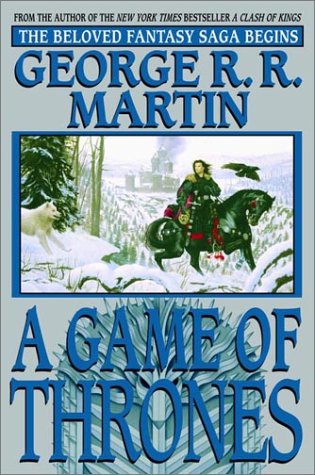(This is part 1 of an exploration of A Song of Ice and Fire by George R. R. Martin.)
Before he began the mammoth series A Song of Ice and Fire, George R. R. Martin wrote for television, penning episodes of the 1980s reboot of The Twilight Zone and Beauty and the Beast starring Linda Hamilton and Ron Perlman. He also created and maintains the Wild Cards shared universe, editing anthologies of short stories set there.
So Martin was already adept at the long-form serial before he began Song of Ice and Fire. Serialized storytelling is a hard art to master (one I’m frankly frightened of!), and I’m in awe of writers who can master it. Dickens was one such master. The release of the end of Great Expectations to London by ferry was akin to the midnight release of Harry Potter and the Deathly Hallows, or the fevered watch parties for series finales of shows like Lost.
A Game of Thrones, the first book of A Song of Ice and Fire, belies Martin’s serial heritage in one important aspect: it is the first part of a much longer story, not a book self-contained with comfortable resolutions. Chapters end on cliffhangers; the novel ends only with the longest breathing space Martin could create, a brief pause in the hell that is Westeros.
The form serial has two big strengths: ongoing character development and the exploration of themes at length. Martin uses both to his advantage.
And oh, what characters!
